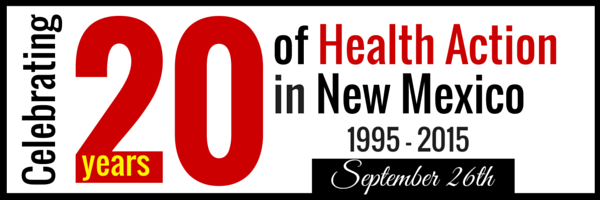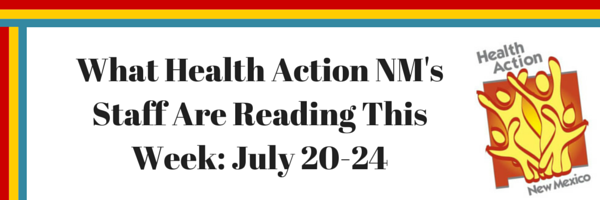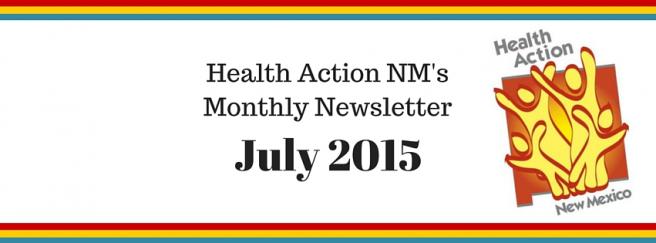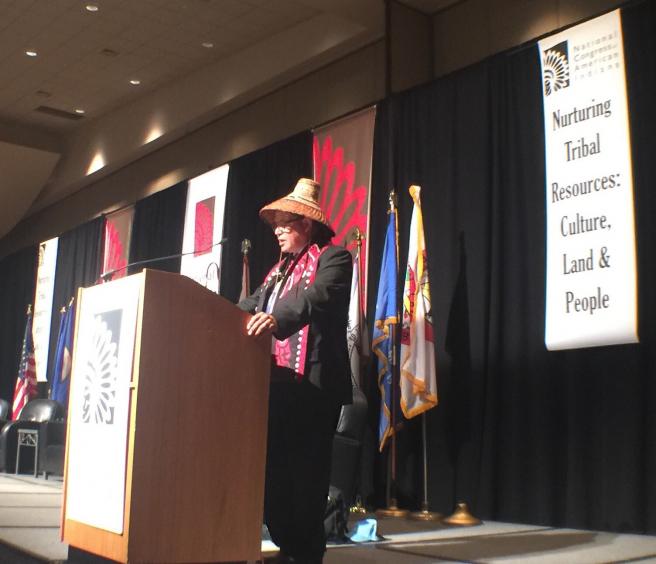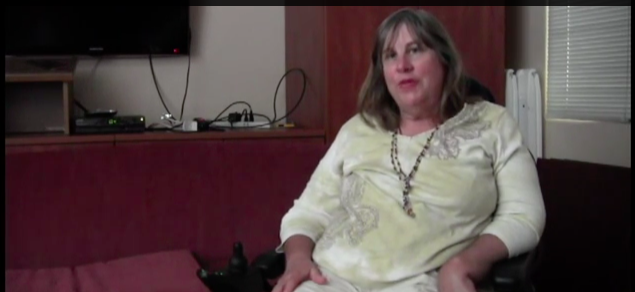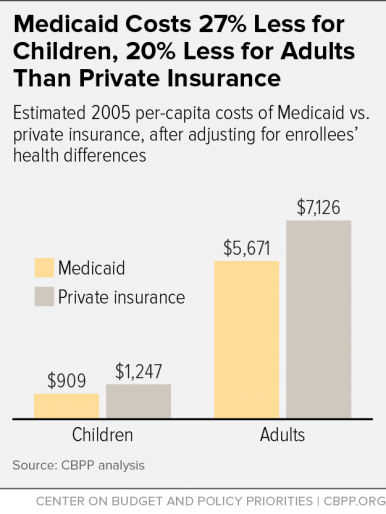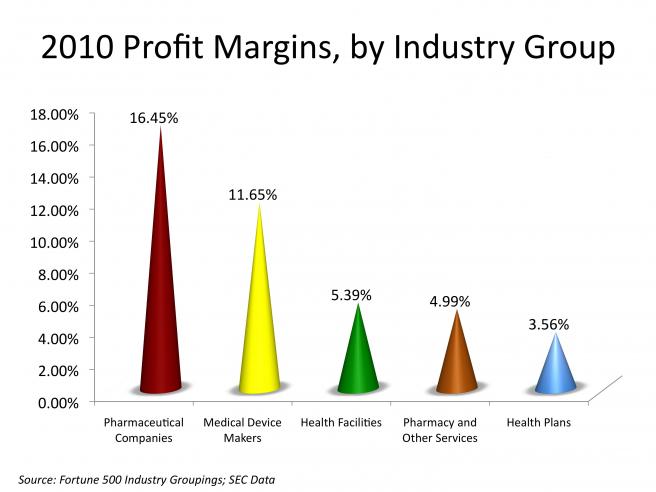
This week instead of reviewing stories, we have decided to post the remarks prepared by former State Senator Dede Feldman in regards to the 50th Anniversary of Medicare and Medicaid. The remarks were presented at the Health Care for All Coalition's Medicare and Medicaid celebration on July 30th, 2015. They provide an encapsulating view of the history of health coverage expansion, the challenges of acheiving full universal coverage, and the path towards that goal. We hope you enjoy her brilliant insights as much as we do.
Former State Senator Dede Feldman
Thank you to the New Mexico Health Care for All Coalition. What a great pleasure it is to be with you here today, as we celebrate the anniversary of Medicare and Medicaid. Since I left the legislature a few years ago, more and more I find myself mulling over the historical and social context of what happens in Santa Fe and Washington. So in that vein, I ask you to take a little stroll down memory lane with me…. Starting with 1964, the year before Congress passed Medicare. The average price of a new house was about $13,000; a postage stamp was 5 cents; and a loaf of bread a quarter. Congress passed the Golf of Tonkin resolution and the war in Vietnam was heating up. There was historic Civil Rights legislation, and it was the year the Beatles invaded the US.
I was a senior in high school that year, and on the debate team. The national question was “Resolved that social security benefits should be extended to medical care for Americans over 65.” I remember vividly the debates, the note cards I meticulously compiled pro and con. It was easy to assemble the con position form the huge number of TV and radio ads, the white papers put out by the AMA, all warning of a soviet style model of medical care. They were the same warnings of rationing, of socialism, of the dangers of some health authority dictating the terms of the most intimate areas of American life that I heard 40 years later in the legislature as I pushed for more health care coverage—by any means necessary.
Here are a few of the clips from that time:
Ronald Reagan: “[I]f you don’t [stop Medicare] and I don’t do it, one of these days you and I are going to spend our sunset years telling our children and our children’s children what it once was like in America when men were free.” [1961]
Barry Goldwater: “Having given our pensioners their medical care in kind, why not food baskets, why not public housing accommodations, why not vacation resorts, why not a ration of cigarettes for those who smoke and of beer for those who drink.” [1964]
The passage of Medicare in 1965 was not an isolated event. It was the culmination of over a half-century of work, by people who believed in universal health insurance, starting with Teddy Roosevelt and the Bull Moose Party in the early 1900s, FDR who shelved it to get social security, and especially Harry Truman who sent Congress its first comprehensive proposal.
It was Harry Truman that President Lyndon Johnson honored fifty years ago today when he traveled to Independence Missouri to sign the Medicare bill. One person who was at his side was New Mexico Senator Clinton Anderson, who played a key role in the early ‘60s. Anderson sponsored a Medicare bill in 1962. It was a key priority of the newly elected president, John F. Kennedy, but it was defeated by two votes in the Senate after a barrage TV and radio ads of phone calls and the first “Astroturf” campaign of canned letters to congress drummed up by the AMA. But the tide of public opinion was turning. Proponents continued to struggle for it in Congress. In1964, two separate bills passed both the House and the Senate. But the conference committee was not able to agree—I hope you’re seeing some parallels with the Affordable Care Act here—and so the measure died, again.
But after Lyndon Johnson received 60% of the vote in the fall of 1964, and Goldwater was defeated, the handwriting was on the wall. This time, in 1965, the conference committee’s report was adopted on July 27 and 28th. And the rest is history.
But it’s a different kind of history than those legendary lawmakers would have expected. Now Medicare and Medicaid are not social insurance programs, strictly run out of Washington. They are largely private programs, run by insurance companies and the states, the subjects of constant financial worry and political pressure.
Of course, the authors of Medicare, and later, Medicaid did know what health care reformers today have learned, with the passage of the Affordable Care Act and other reforms. That each victory is part of a progression of smaller steps, one building upon one another. Sometimes in the slow process, it seems like we are going backward, exerting all our efforts just to prevent the dismantling of what those policy makers gathered in Missouri staked their reputations, their positions, and the efforts of a lifetime on.
But in the ensuing twenty years we have built on their efforts, starting the Children’s Insurance Program, most recently expanding Medicaid to 800,000 recipients in New Mexico, adding a drug benefit to Medicare, imperfect as it is, and passing the Affordable Care Act, which will be celebrated 50 years from now as another giant step along the road to comprehensive and health care coverage.
We all know that there are many challenges ahead for Medicare and Medicaid—how to bend the cost curve in the face of the onslaught of new baby boomers? How to negotiate for lower prescription drug prices? How to prevent fraud and abuse? Or streamline the huge Medicaid bureaucracy, which rests on an outdated waiver system that costs states million to prove what they already know is working. But we also know that the route to reshaping the delivery system, moving away from fee for service, and moving toward a more accountable and equitable system starts with Medicare and Medicaid.
But today, today shows us, that the arc of history does bend toward justice, toward what Johnson called in the same speech “a triumph of rightness in America.” So, thank you, it’s great to be a part of this stream of history with you today.
- Dede Feldman, Former New Mexico State Senator and Author of “Inside the New Mexico Senate: Boots, Suits, and Citizens"
Health Action




